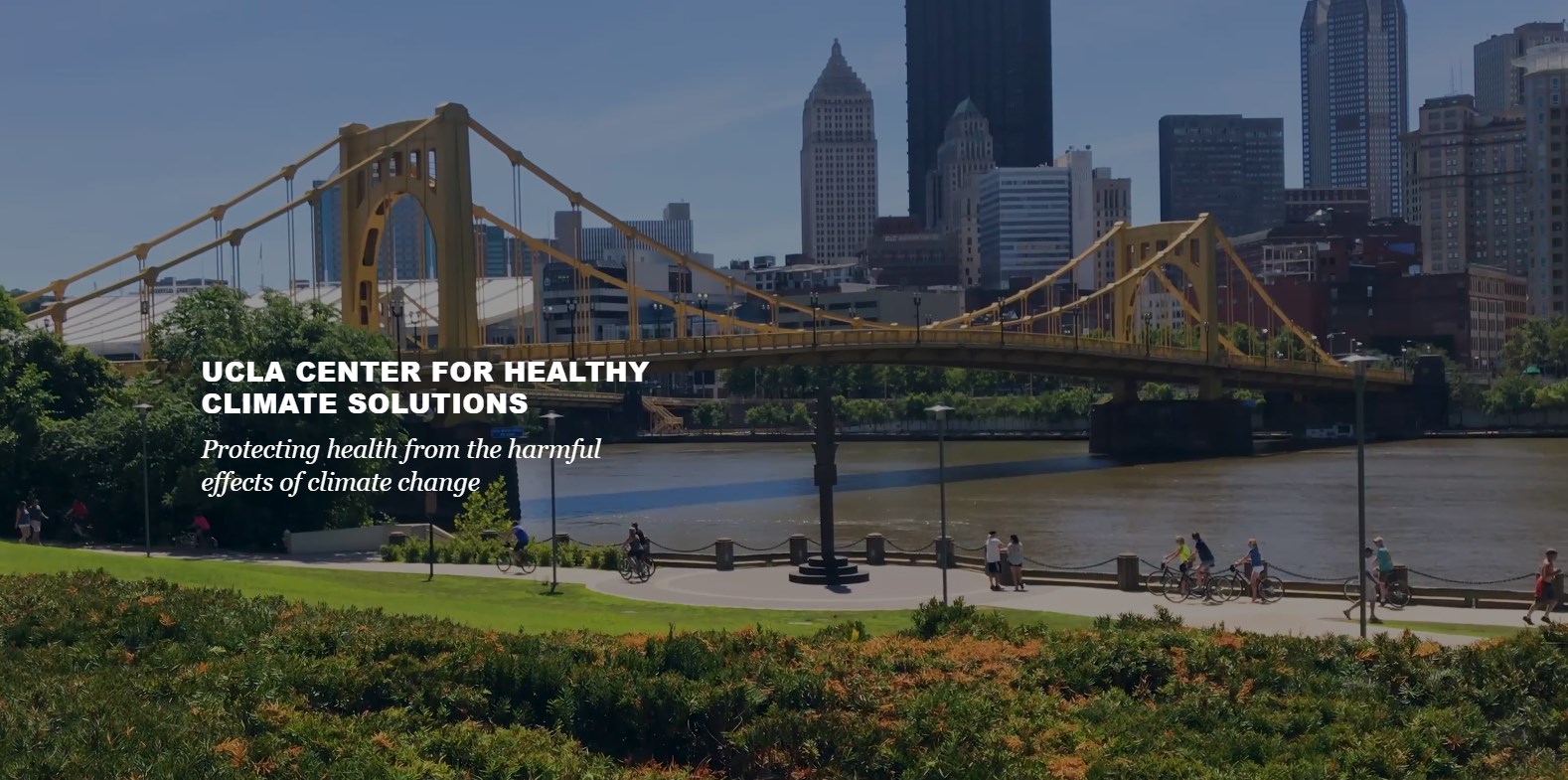UCLA announced Wednesday it has created the UCLA Center for Healthy Climate Solutions under the aegis of its Fielding School of Public Health to combat “the most significant public health disaster we face.”
“Los Angeles is a city that tackles our toughest challenges by tapping into the innovation and creativity in our own backyard, and this UCLA center will help us build a safer, cleaner and more equitable city and world,” said Los Angeles Mayor Eric Garcetti, who is chair of C40 Cities, a global organization of almost 100 cities committed to action against climate change.
UCLA C-Solutions, as the center will be known, will collaborate with public officials and community partners, including the mayor’s office, to advance research-based strategies for strengthening communities’ ability to adapt to climate change’s harmful health effects and slowing its impact.
“Climate change is the most significant public health disaster we face, with effects that are already being felt and will only become more severe if we don’t take bold and immediate actions,” said Dr. Jonathan Fielding, the co-director of C-Solutions and a UCLA distinguished professor-in-residence of public health and medicine. “If we don*t solve the climate issue, we won’t have a habitable planet. End of story.”
Fielding was Los Angeles County’s public health director and health officer for 16 years and recently co-chaired Healthy People 2030, which set national health objectives for the next decade. He said climate change should no longer be viewed solely as a future problem, but as a current crisis.
In major cities in the U.S. and around the world, more frequent heat waves are causing increased numbers of illnesses and deaths. Hotter and drier conditions are resulting in longer, more intense wildfire seasons. Warmer ocean temperatures have increased the intensity of hurricanes, cyclones, and tropical storms, and the wide-ranging effects range from flooding to a higher incidence of anxiety and depression.
While climate change ultimately affects everyone, the health risks are disproportionately felt among low-income families, people of color, outdoor workers and those with chronic health conditions, Fielding said. The center will prioritize research, policy recommendations and advocacy efforts that could benefit those vulnerable groups.
“We know from research that there are many ways to mitigate or adapt to climate change that come with public health co-benefits; for example, promoting active travel with better infrastructure for walking and biking reduces greenhouse gas emissions and also increases beneficial physical activity in the population,” said C-Solutions co-director Michael Jerrett, a professor of environmental health sciences at the Fielding School.
“Studies have found that air pollution is associated with 8 million deaths a year worldwide from heart conditions, strokes, lung cancer and other health issues, and estimates indicate that moving to a more sustainable energy system to reduce climate change would save about 1 million lives a year …”
C-Solutions’ work is already underway. The center, which includes UCLA faculty experts as well as students training to serve as the next generation of climate health leaders, prioritizes research, innovation and the practical application of solutions. For example, research being conducted by Jerrett addresses the health benefits of measures to prevent wildfires and reduce exposure to related air pollution.
And to ensure that solutions will have lasting positive impact, the center is working with community organizations. An effort underway with the Prevention Institute is aimed at understanding the life expectancy benefits from increasing green space and parks, which also help people adapt to the warming climate by cooling cities.
The UCLA Fielding School of Public Health, founded in 1961, has 690 students from 25 nations engaged in “building healthy futures in greater Los Angeles, California, the nation and the world,” according to a UCLA statement.
Originally published September 2, 2020 at https://mynewsla.com/education/2020/09/02/ucla-announces-creation-of-cen…

